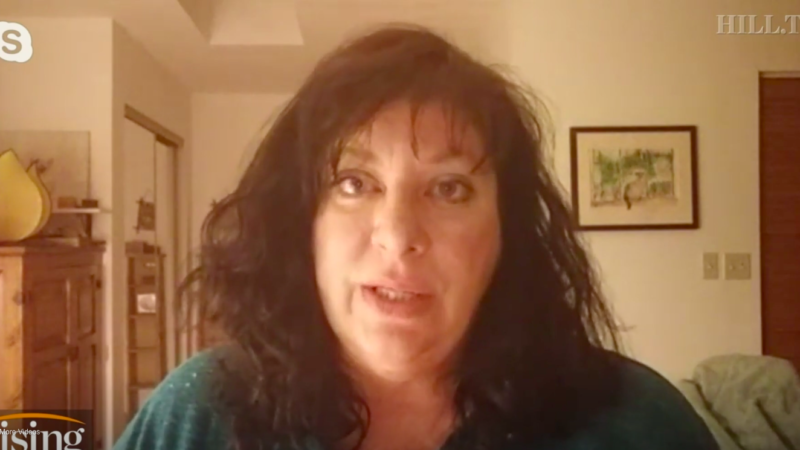Tara Reade's Mother Allegedly Discussed Joe Biden's Abusive Office With Larry King in 1993
Why aren't TV networks grilling Biden about this?

New evidence has emerged that supports—albeit weakly—former Senate staffer Tara Reade's claim that she was mistreated while working for Joe Biden.
In recent weeks, Reade has alleged that Biden—then a senator, now the Democrats' presumptive presidential nominee—sexually assaulted her in 1993. That's a different story than she told last year, when The Washington Post interviewed her about an alleged climate of sexual harassment in his office. Back then, Reade said that there was rampant sexism among Biden staffers but that the problem was not Biden himself.
The Post, The New York Times, and other outlets have handled Reade's recent, more serious allegation—that Biden had digitally penetrated her without her permission—with extreme caution. Liberal columnists who emphatically believed Christine Blasey Ford's story of suffering sexual misconduct at the hands of future Supreme Court justice Brett Kavanaugh are nevertheless skeptical of Reade, and it's hard to process this as anything other than hypocrisy. Some more fair-minded commentators, including Reason contributor Cathy Young, agree that there may be a double standard at play but nevertheless have argued that Reade's accusation is less plausible than Ford's.
But there's now somewhat more corroboration of Biden's alleged misconduct than of Kavanaugh's. Reade has claimed that she informed her mother about her broader mistreatment in Biden's offices at the time, and that her mother called in to Larry King's CNN show to talk about the issue. The Intercept has now acquired audio of a call along those lines. While no one can say for absolute certain that the speaker is Reade's mother, the dialogue does fit the description, and Reade confirmed that it was her mother's voice:
KING: San Luis Obispo, California, hello.
CALLER: Yes, hello. I'm wondering what a staffer would do besides go to the press in Washington? My daughter has just left there, after working for a prominent senator, and could not get through with her problems at all, and the only thing she could have done was go to the press, and she chose not to do it out of respect for him.
KING: In other words, she had a story to tell but, out of respect for the person she worked for, she didn't tell it?
CALLER: That's true.
The caller is not specific about the nature of her daughter's problems; there is no reference to a physical assault. But the call does represent a small amount of additional evidence in Reade's favor. The Washington Examiner's Tiana Lowe writes that Reade "now has more evidence than Blasey Ford's claim against Kavanaugh," and it's hard to disagree. There was never any contemporaneous evidence that Kavanaugh and Ford were ever actually at the same party, and in fact, one of the alleged eyewitnesses could not recall the episode in question.
This is by no means proof that Reade is telling the truth, and the fact that she changed her story as recently as a year ago continues to be a valid justification for maintaining healthy skepticism. But everyone who took Ford, Julie Swetnick, Deborah Ramirez, and (separately) E. Jean Carroll at face value—including the television networks that aired these women's claims immediately—should explain why this time it isn't good enough. And there's no excuse for declining to ask Biden about this. The candidate is famously committed to giving accusers at least an initial presumption of belief, no matter how long ago the allegations occurred or how reticent the victim was to discuss them.


Show Comments (123)